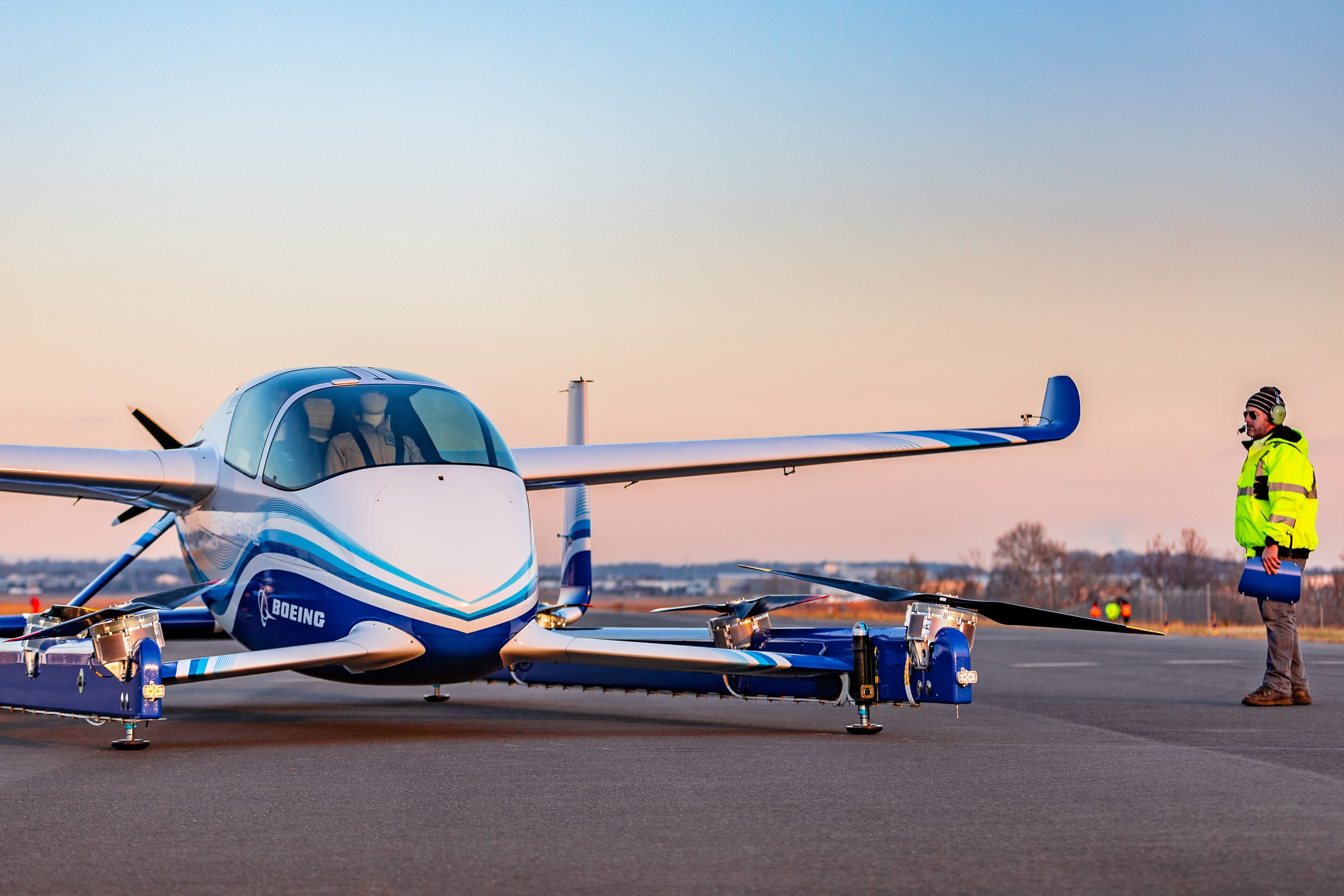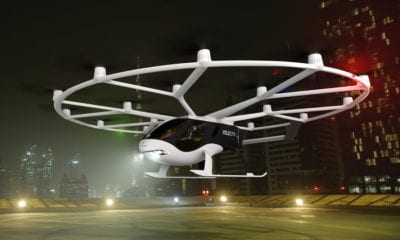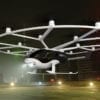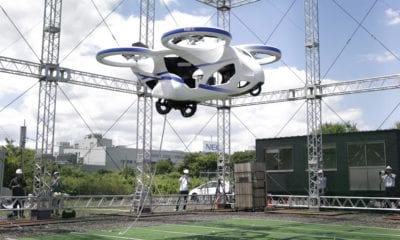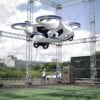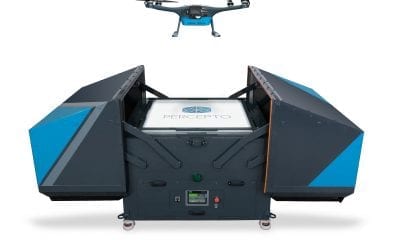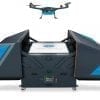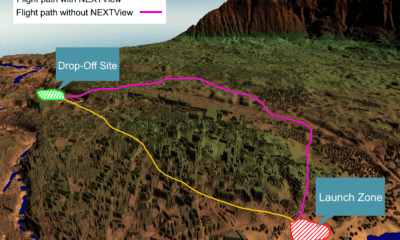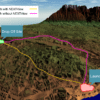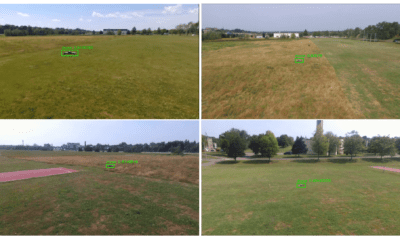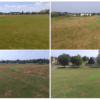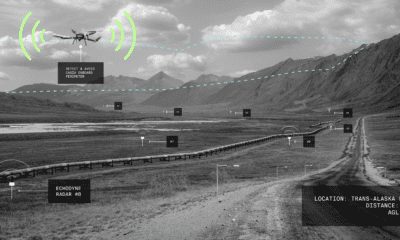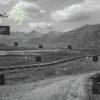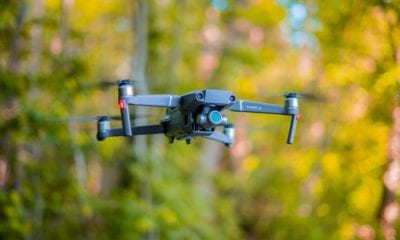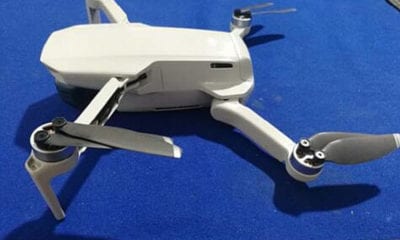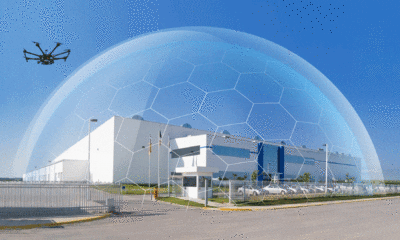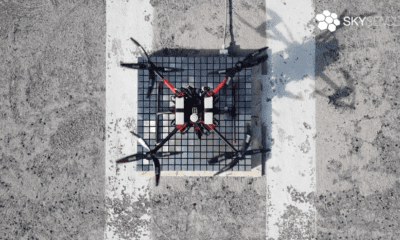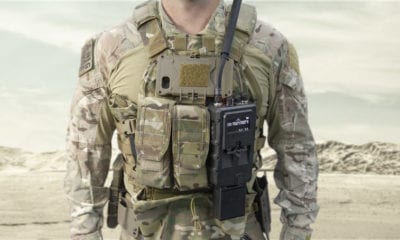Autonomous
Boeing’s Autonomous Electric Passenger Drone Completes First Flight
Boeing has officially released a statement reporting the successful flight of its prototype autonomous passenger air vehicle which completed a controlled takeoff, hover and landing during the test conducted in Manassas, Virginia, about 30 miles southwest of Washington D.C.
Boeing also revealed that the model is designed for fully autonomous flight, with a range of as much as 50 miles and is propelled by electricity. Boeing’s flying car designed to whisk passengers over congested city streets and dodge skyscrapers completed its first test flight offering a peek into the future of urban transportation the aerospace giant and others are seeking to reshape air mobility.
Boeing’s urban air mobility arm, Boeing NeXt, enlisted their subsidiary Aurora Flight Science to design and develop the prototype. Projects of Aurora Flight Sciences include a new flying taxi it is developing with Uber Technologies. Boeing NeXt’s portfolio also includes a fully electric cargo air vehicle – designed to transport as much as 500 pounds – which completed its first indoor flight last year and is scheduled for outdoor testing this year.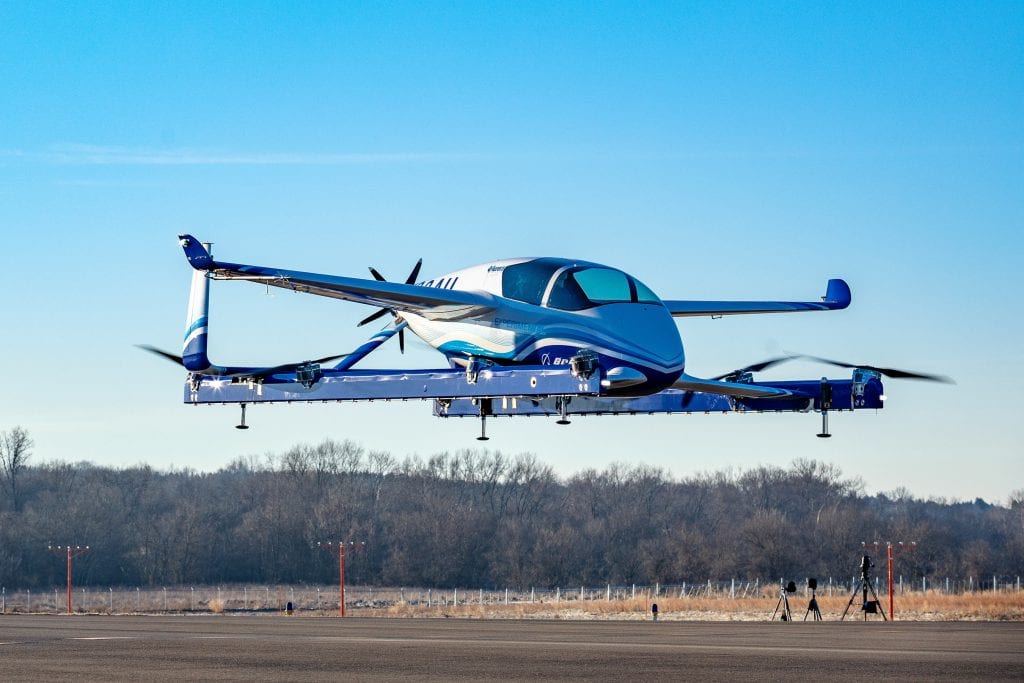
The Boeing statement also mentioned future flights of the 30-feet-long and 28-feet-wide PAV prototype and the transition phase between vertical and forward-flight modes. The company will continue testing to advance safety and reliability of the aircraft, the statement further added.
BREAKING: It’s another first for us. Along with @AuroraFlightSci we’ve successfully tested our passenger air vehicle. We continue our progress towards a safe and sustainable urban mobility ecosystem. #TheFutureIsBuiltHere pic.twitter.com/hwuw4d5jmz
— The Boeing Company (@Boeing) January 23, 2019
Describing the Premiere as a milestone Boeing’s chief technology officer Greg Hyslop stated, “Within a year, we came from the concept Design to a flying prototype.” The US group acknowledged that the biggest challenge with the Transition to the application of various kinds of Flight was imminent.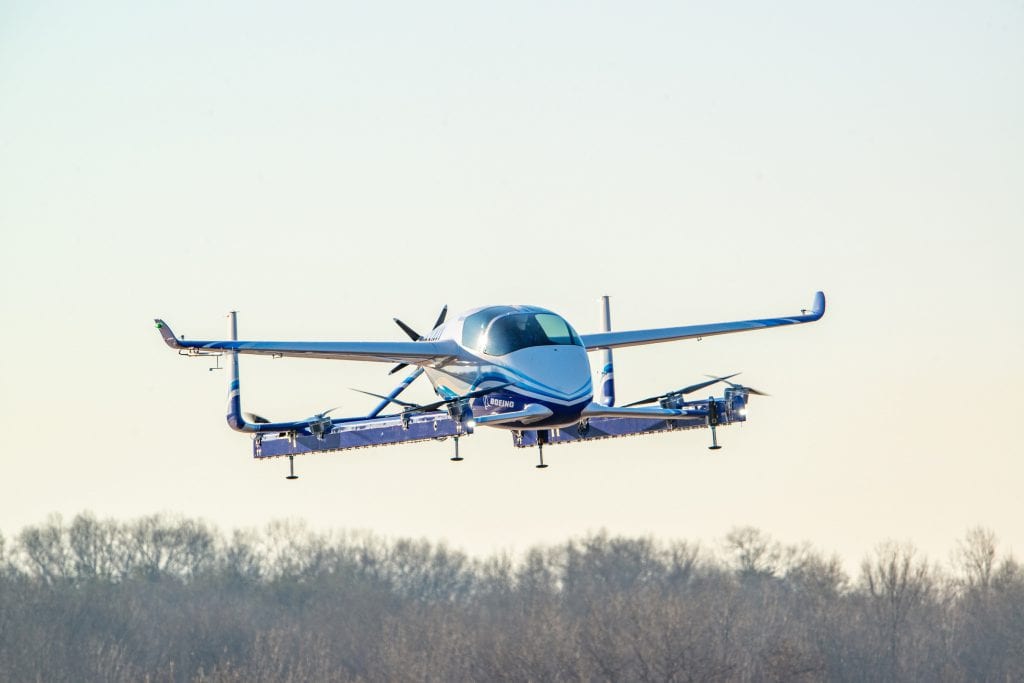
This development has definitely heated up the competition for other players in the field. For instance- Vahana, the self-piloting air taxi developed by A3, Airbus’s tech-centric Silicon Valley outpost, completed its first test flight last year. Intel and EHang are also testing their flying vehicles. Also arch rival Airbus or a helicopter, specialist Bell, as well as German Start-ups such as Volocopter and Lilium are working on concepts for Autonomous passenger aircraft.
Most of the air taxi prototypes which are currently being researched resemble over-sized drones that are capable of carrying only a few passengers. Skeptics maintain opportunities are limited given high regulatory hurdles. However market analyses from Morgan Stanley’s most optimistic estimate predict that air transport technology could lead to a $2.9 trillion industry by 2040, while their most pessimistic view pegs the value at about $615 billion.
It is still unclear when flight taxis will be allowed and whether they could assert themselves ever in public transport. But given the extensive ongoing trials and projected market growth, these air taxis are not far from becoming a reality and a common sight in traffic congested cities across the globe.

